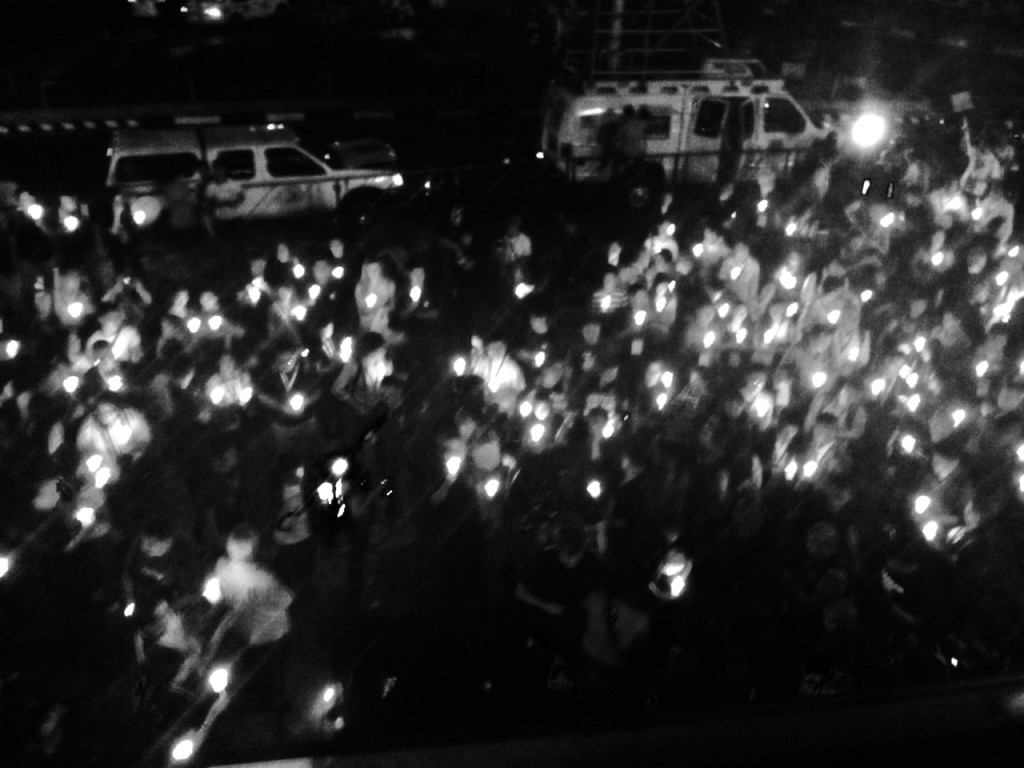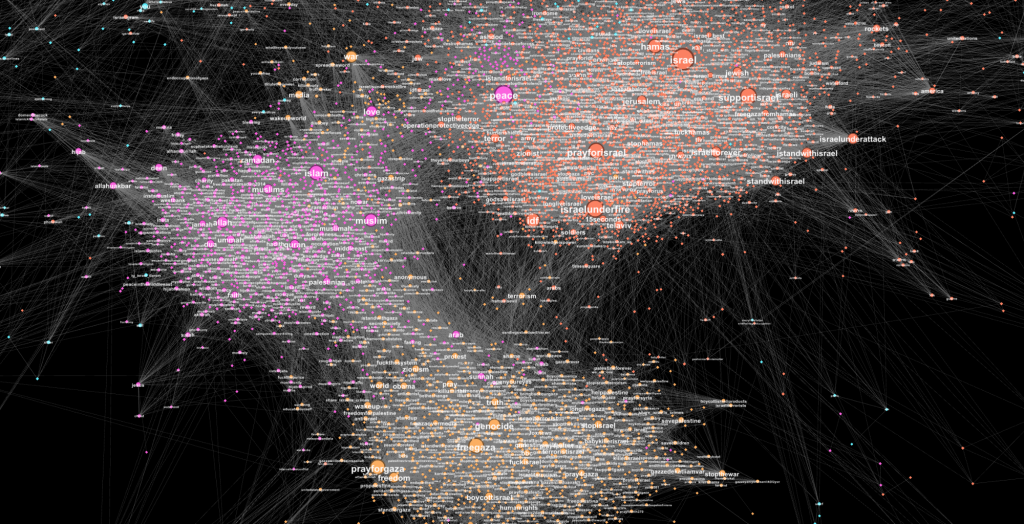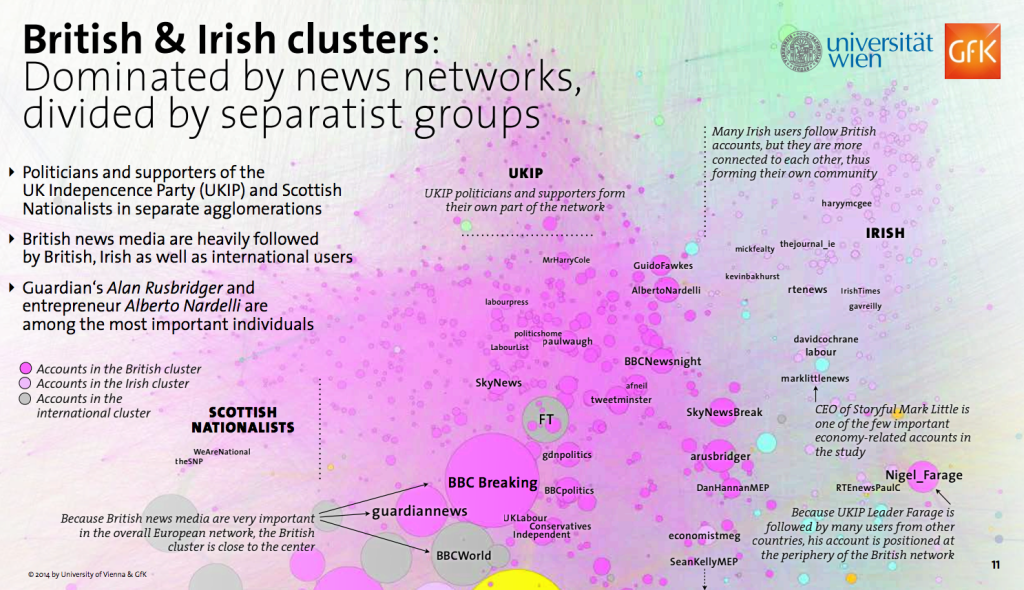Forbes Philippines & BlogWatch win best story award as Data Journalism PH wraps up
Sam Leon - December 15, 2015 in Uncategorized
At the end of November, Open Knowledge, School of Data and the Philippine Center for Investigative Journalism (PCIJ) wrapped-up their six-month data journalism training for media organisations in the Philippines, the first of its kind.
Over 100 journalists and civil servants gathered at the Cocoon Hotel in Quezon City to see the twelve participating media teams present their work and listen to keynotes from The Guardian’s Caelainn Barr, Undersecretary Richard Moya (Open Data Task Force Philippines), Kenneth Abante (Department of Finance) and Rogier Van Den Brink (World Bank) on the interplay between government open data and public integrity journalism.
Kenneth Abante from the Department of Finance speaking at the wrap-up event of Data Journalism PH 2015
The World Bank funded programme equipped participating newsrooms with the tools and techniques for mining the ever increasing volumes of public data being published by Philippine government departments via their national government data portal, data.gov.ph. After an initial intensive three-day training in July 2015 the teams received regular remote training sessions on data skills from Open Knowledge and editorial support from PCIJ as they progressed with their proposed data stories. Teams worked on diverse topics from probing who really benefits from the the Philippines’ Bottom Up Budgeting initiative to following where money allocated to the reconstruction effort after Typhoon Yolanda actually went.
Five of the twelve participating teams were able to publish their stories before the event with a number of teams finalising their articles for print publications in the new year. Forbes Philippines and BlogWatch were awarded prizes for best story by PCIJ and Open Knowledge based on the originality of their stories, their approach to data collection and the strength of their narrative. Forbes Philippines collected data from the SEC on independent directors and correlated this with company performance to give a unique view on corporate accountability in the Philippines. BlogWatch persevered with a range of large publicly available datasets on aid and reconstruction. The team also took to social media to crowdsource information that was missing in order to follow the money that was plugged into various projects in the wake of the devastation caused by Typhoon Yolanda.
Winning teams BlogWatch (Jane Uymatiao & Noemi Lardizabal-Dado) and Forbes Philippines (Lala Rimando & Lorenxo Subido) with Sam Leon (Open Knowledge) and Malou Mangahas (PCIJ)
Philippine Star ran an analysis of data published by the Department for Education on how many new schools were being built that would not have access to electricity and water. Business World looked at new trends in investment amongst Filipino citizens and summarised their results in an infographic. Calbayog Post investigated how projects approved under the Bottom Up Budgeting scheme in Samar Province had performed. The Financial Times produced a visual slideshow on the Philippines’ dependence on renewables and the opportunities for hydro power using data published by the Department of Energy. You can read the published stories below with the exception of Forbes Philippines’ which will be published in their January 2016 editions. Other participating teams including Rappler, PCIJ, Interaksyon, ABS-CBN, Bloomberg, Inquirer were not able to publish in time for the deadline, but hope to publish their stories in the coming weeks.
The Philippines has made substantial progress in recent years in government transparency. Launching a national government open data portal in 2014 and setting up an Open Data Task Force within the civil service to catalyse further open data releases across national and local government. The programme demonstrated the promise of open data by enabling participating journalists to shed light on issues of critical national importance to the broader public. It also put into sharp focus areas that needed more work from publishing government departments. Too many critical datasets were incomplete, not maintained actively, contained inconsistencies that made them difficult to analyse and were not available for free.
A selection of the online tutorials, data recipes and training material have been made available for all to use on the project website including guides to using a range of tools such as Infogr.am, CartoDB, Import.io and DocumentCloud.
###Data-driven articles produced as part of the programme
Forbes Philippines and BlogWatch were awarded prizes for best story by PCIJ and Open Knowledge based on the originality of their stories, their approach to data collection and the strength of their narrative.
- BlogWatch (best story winner)
- Forbes Philippines (best story winner)
- Philippine power generation: a tidal change in renewable energy – Financial Times
- Where Filipino’s ‘Smart Money’ is going – Business World
- Bottom’s Up? How did Samar communities make use of the BUB fund? – Calbayog Post
- Philppine Star
###Testimonials from some of the participant journalists
“The workshop allowed me to be braver in pursuing irregularities and anomalies with the help of data, but also to be careful in making conclusions. It’s a nice intro to data journalism.” – Michael Joseph Bueza, Rappler
“Data Journalism PH 2015 is a workshop every serious journalist should take. More than teaching me practical skills – how to create maps, infographics, and spreadsheets – it made me realize how important it is to use hard facts, as opposed to merely relying on statements, to create a public that is more informed and more critical.” – Patricia Aquino, Interaksyon
“A great program! PCIJ has always set the standard for investigative journalism. Open Knowledge did a great job teaching us data journalism and the different skills it requires. Looking forward to continuing to work with the whole PCIJ team. The reports of the other teams were informative as well. Thumbs up to the whole group.” – Nestor Corrales, Inquirer
“The best journalism program ever that united my writing and analysis skills.” – Rommel Rutor, Calbayog Post
“It was a great chance to know how and why consumers and processors of data (i.e. the journalists) are seeking more from the producers of data (government, private sector). “ – Lala Rimando, Forbes Philippines
“It was a great opportunity to be part of this programme. I’m really interested in improving my technical and editorial skills on data mining and thanks to PCIJ and Open Knowledge, I’ve really learned a lot.” – Kia Obang, BusinessWorld Publishing
“Open data seems like an issue reserved for a select number of people, but it’s a subject that so many people need to be familiar with. Learning more about it through the programme can give you the right tools to turn open data into powerful analysis.” – Kyle Subido, Forbes Philippines
“If you want to learn how to dig into huge data, you gotta take this training. “ – Jose Gerwin Babob, Calbayog Post
“As a reporter covering different beats, including survey results, the training helped me learn new skills that would make me more effective in writing investigative stories by correctly analyzing and interpreting datasets. I really appreciate the efforts of the PCIJ and the Open Knowledge in coming up with such training for journalists like us. This will be a very good addition to our resumes. :-)” – Helen Flores, Philippine Star
“Had a grand time. Learned about the existence of free online tools which could potentially take off about 25% of my previous workload.” – Dan Paurom, Inquirer
“The Data Journalism Philippines 2015 is a timely program for Filipino journalists who are interested in making sense of the huge amount of data that are readily available online. The things that we have learned during the duration of the program equipped us with the necessary skills needed to produce quality data-driven articles for our respective organizations.” – Jan Victor Mateo, Philippine Star






 has been published on Rappler.](https://schoolofdata.org/files/2014/11/photo-3-1024x768.jpg)







![OpenOil’s attempt to map BP and its subsidiaries using Google Fusion Tables. More information [here] (http://openoil.net/corporate-networks/bp-corporate-network/)](https://schoolofdata.org/files/2014/08/image02-1024x401.png)
